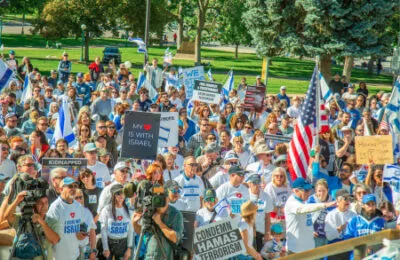I ARRIVED in Tucson on July 3, 1976, with nothing but a backpack, post-college dreams and a lot of sand in my shoes. The three months it took me to hitchhike from Oberlin, Ohio, to Tucson, Arizona, really took a beating on my hiking boots and the slim savings I had.
My plan was simple: to live with my Aunt Gen for a while until I figured out what I wanted to do with the rest of my life. Gen, who was really my dads first cousin, was 58, newly widowed and filled with dread about living alone, so it seemed like a perfect plan.
Moving to Tucson 40 years ago gave me more than an opportunity to perfect my tan. Over the years, I was able to explore and develop as an adult without many of the burdens and expectations I would have carried had I returned to my hometown in New Jersey. It gave me ample space to truly grow into myself.
Aunt Gen was an essential part of that process: I became the daughter she never had as she offered me her wisdom, wit, spare bedroom and car. We experienced each other openly and honestly, without a lot of the schtick that often accompanies family relationships. It was a bond we both needed and treasured.
Aunt Gen was diagnosed with stage four cancer in January, 1996. They said she had four to six months to live, barely enough time to get her affairs in order, let alone do what she wanted to do before she died.
How would she possibly see all her family and friends before she died?
How would she arrange her schedule to include morning desert walks, afternoon chemotherapy treatments and evening dinner dates?
Who would balance the chemicals in her pool and fix the garage light when she got weaker and couldnt handle it all?
We didnt acknowledge what we both knew, that every passing day brought us closer to her end.
But what we did acknowledge was that for as long as we had together, we could use that time to talk about our relationship, the family, her successes and regrets, what she would miss most when she was gone.
What I came to understand during those six months was that the most essential part of her dying was the ability she still had to talk about her life.
I ASKED her once when we were sitting on her back porch whether she believed in G-d. It was a windy day in March and the scarf that covered her fragile hairless scalp blew softly around her face. In that one moment, she looked so young I couldnt believe she wouldnt be here to watch my children grow up.
I dont really think I believe in G-d, she answered, but sometimes I wish I did. People are my religion, I believe in the goodness of mankind and the creativity and love of the human soul.
We sat there for a while and then she asked me if I would do her a favor. Would you say the mourners kaddish for me after Im gone?
Coming from a woman who had never once acknowledged that Jewish ritual was important to her, the question surprised me.
Of course I will, but why?
She hesitated for a moment then gently laid her hand on mine. Because I dont know for certain whether G-d exists and I want to be remembered in the way my parents and grandparents were.
Besides, she said giving my hand a squeeze, women can say it now, right?
She was referring to the fact that throughout Jewish history only men were counted as part of the required group of 10 (the minyan) who needed to be present to say the kaddish.
The kaddish, an Aramaic prayer that is very old, consoles, elevates and renews hope in the mourner that G-ds goodness will prevail. It is recited at the burial and for 11 months after the death of a parent at daily, Sabbath and festival services.
While never mentioning death, the kaddish affirms life in the face of death and exalts Divine greatness.
My Aunt Gen knew G-d through her love of and for people. After she died, I came to understand an essential lesson about life.
Love doesnt die, only people do. We carry that love within us and continue to be in relationship with those who have died long after they are gone.
In asking me to recite the kaddish for her, my Aunt Gen not only affirmed her life and the tradition she was born into, but gave me a way to honor and love her as I learned to live without her.
Copyright © 2016 by the Intermountain Jewish News











